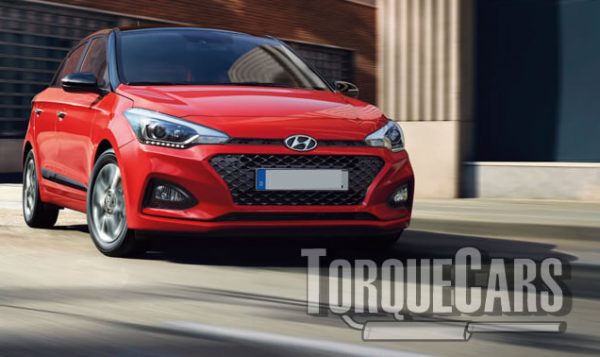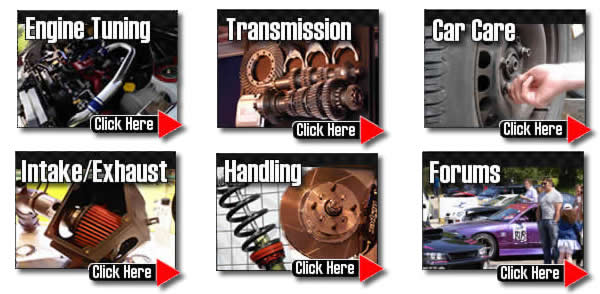Hyundai i20 Tuning
"Thank you for reading my i20 tuning guide."
The Hyundai i20 is the new spacious supermini that takes on the Ford Fiesta and Audi A1 using a completely new platform and it became popular very quickly thanks to good reviews and press coverage.
It's great to see a car company pull things back and get back on top of their game, and the i20 shows how far Hyundai have come in a short time.
We take a peek at i20 tuning and summarise the best modifications. Hyundai i20s are fantastic to work on and with the right modified upgrades you can definitely maximise your driving experience.
There are no less than seven four cylinder engine options. Three are petrol, including the 1248 cc dohc 16 valve "Aditeya" engine, while the rest are diesel engines. Two of the diesel engines are 1396 cc units, one with 75 PS (55 kW; 74 hp) and 220 N⋅m (160 lb⋅ft) and the other a 90 PS (66 kW; 89 hp) and 220 N⋅m (160 lb⋅ft) high power unit. Two 1582 cc and in other markets a number of other engine options were available.

The only thing holding you back in your i20 project is time, money and your imagination We do see car enthusiasts wasting money on their i20 doing the wrong mods and then having to start over. Follow our guides to avoid ruining your car

Handling modifications are often a priority for i20 owners.
We found that most i20 factory suspension setups need a lttile tweaking, a few degrees of toe out -1 to 2, and some negative camber will substantially benefit your cornering and handling.
Drop the car by as much as 35mm - 45 mm and fit motorsport grade stiffer dampers, bigger drops will need other modifications in most instances.
Firmer springs or coilovers that are adjustable will help things improve and a front strut brace will firm up the handling.
Turning our attention to the i20's engine we need to get a bit more power out of the top end.
The best power gains come from larger engine sizes. The more you start with the bigger the return on investment so engine swaps can work out cheaper than increasing the power of the 1.2 to match the 1.6.
Because of the light chassis even small power gains benefit the driver.
Power mods.
These mods mods are usually installed by our members, decide how far you want to push your car before you get started.
Getting the best modified parts for your planned usage of the car is vital. Stage 3 motor sport parts just don't work well on the road making the car difficult to drive.
- 1.2 L Kappa I4 (petrol)
- 1.25 L Kappa I4 (petrol)
- 1.4 L Gamma I4 (petrol)
- 1.6 L Gamma I4 (petrol)
- 1.1 L U-Line CRDi I3 (diesel)
- 1.4 L U-Line CRDi I4 (diesel)
Please watch our introduction Video tutorial to car tuning. Be sure to subscribe and support our new channel.
How to tune your car
- Improve the handling
Focus on Suspension improvements, such as coilovers and make sure the bushings are in good order and that the alignment is correct. Then focus on improving the brakes, with a big disk brake conversion kit and fast road brake pads.
- Remove restrictions
Focus on the intake and exhaust with filters being the common point of restriction in a tuned car. Intercoolers may also become restrictive on turbo engines so this may also need to be uprated.
- Burn more fuel & air
Increase the fuelling so it matches the air coming into the engine. The ratio is important so you need to improve the fuel pump and injectors, so the head mods, big valve conversions, fast road camshafts and forced induction upgrades extra supply of air is adequately met.
- Test and replace any weak parts
Weak areas are commonly the clutch, the turbocharger and pistons and crankshaft in a highly tuned engine. Makes sure these components will cope with your power aspirations.
- The Tune or Remap
A cars ECU controls the fuel, timing, spark and even the turbo in some cases, so to fully extract your gains you should remap the car last and this will fully release the power. Some cars are easy to map, and others require piggyback ECU's or aftermarket ECU's but this is the most vital step of your tuning project.
Modifying to Stage 1:
Suspension upgrade (drop 35-45mm), Sports exhaust, Remap, Alloy wheels, Panel air filter, Lighter flywheel.
Modifying to Stage 2:
Ported and polished head, Fast road cam, high flow fuel injector, fuel pump upgrades, Power/Sport clutch.
Modifying to Stage 3:
Competition cam, Internal engine upgrades (pistons/head/valves), Sports gearbox, Adding or upgrading forced induction (turbo/supercharger), Engine balancing.
Your aims when modding your car should be a flat and wide torque curve. You want to avoid sending all the torque to be at the top end unless you are creating a competition car.
The aim of our guides is to give a starting base of tuning mods and point you in the right direction, our forum is the place to go for detailed advice and tips on your customized car project, the best sport modifications and all aspects of modding cars.
Fast road cams offer one of the biggest performance gains for your money as far as a single modified modifications goes on a NASP engine.
The intake and exhaust flow play a large part in your cars power band, but be careful here, getting this wrong can upset the idle and make the car hard to drive in traffic. You'd need to follow a camshaft upgrade with other mods and finish with a reflashed ECU to fully release the power gain.Don't forget to ramp up the fuelling when you are increasing the power - it makes the car more thirsty.
Frequently power losses, flat spots and erratic idling after upgrades are done can usually be traced to timing or fuel delivery issues. Uprated injectors will enable you to supply sufficient fuel to the engine. If you are increasing your fuelling with bigger injectors you will also need to get a bigger fuel pump to supply it.
Intake and Exhaust Tuning.
The next area for modification is the intake and exhaust. Air induction kits are only beneficial to add power if the cars air intake is restricted! Adding an induction kit to most standard engines will see NO LOW END POWER GAIN AT ALL.
If you have heavily modified your engine and it's need for air INCREASES DRAMATICALLY then an induction kit is the answer and will help remove this restriction.
Maximum power gains come from a full induction kit with a cold air feed on heavily tuned engines, this can be sited within an air box but a panel filter should suffice for most applications. TorqueCars suggest you use a panel air filter as these are easy to clean and maintain and generally perform better than paper ones.
Do not go with the largest exhaust you can buy this will reduce the exhaust flow rate - the best exhausts for power gains are usually between 1.5 to 2.0 inches. It is the shape and material more than the bore size.
Airflow through the head can be dramatically increased with some professional polishing and ported. These should match and be setup to take into account any other engine mods.
A good heavy duty fast road upgraded clutch will help to keep that power going where it should. Never cut corners or ask your standard OEM clutch to cope.
Turbo engines are just begging to be Remapped. You will see big power gains on most modern turbocharged cars including diesels making a remap one of the most cost effective and big modifications for your money.Despite the large cost involved adding forced induction to a NASP engine will give large power gains. Superchargers are usually easier to add than a turbo. With a turbo the power curve is related exponentially to the engine speed making it more challenging to map.
The nice correlating boost and rpm characteristics of the supercharger make them more straighforward to map. Alternatively you could install water injection to control knock.
Alloy wheel upgrades.
As alloy wheels are lighter they improve performance and they help to cool the brake disks. The drawback to large alloy wheels on your i20 is that you're changing your effective final drive ratio so this will have a negative effect on performance and acceleration.
Although some people have gone larger than this without issues we would stick to a 16 inch rim size as the maximum.
For more information on Tuning your car please join us in our friendly forum where you can discuss i20 options in more detail with our i20 owners. It would also be worth reading our unbiased Hyundai tuning articles to get a full grasp of the benefits and drawbacks of each modification.
Please help us improve these tips by sending us your feedback in the comments box below. We love to hear what our visitors have got up to and which mods work best for them on each model of car. Comments are used to improve the accuracy of these articles which are continually updated.
If you liked this page please share it with your friends, drop a link to it in your favourite forum or use the bookmarking options to save it to your social media profile.
Check out TorqueCars new YouTube channel, and see their awesome new content...
Feedback
Please use our forums if you wish to ask a tuning question, and please note we do not sell parts or services, we are just an online magazine.
Help us improve, leave a suggestion or tip
